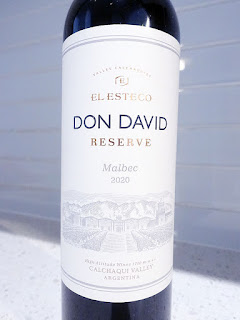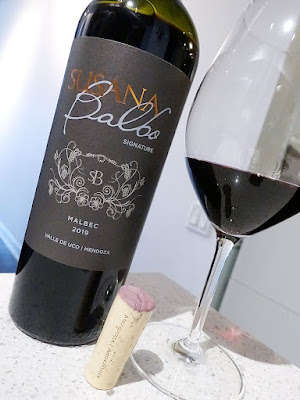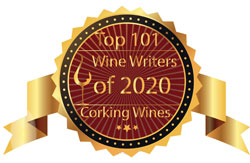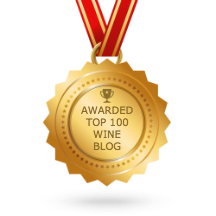After enjoying the 2018 La Posta Estela Armando Bonarda back in August 2020, red wine review is the latest vintage of this lovely Bonarda from Argentina that arrives at the LCBO this weekend in the LCBO VINTAGES Release.
Produced by La Posta Vineyards, a range of entry-level wines which are part of the Catena family and formed in the year 2000 after Dr. Laura Catena discovered a handful of growers who consistently showed impressive results with specific varietals year-after-year. La Posta wines salute these hard-working growers who strive for superior flavours from grapes they grow on their own estate, and produce wines that are often single vineyard bottles. Each La Posta label illustrates a story of these individual families and are inspired by Art Nouveau and Art Déco designs of the 1920s and 1930s.
The grapes for this Bonarda were grown by Estela Armando. Her family has been growing grapes in Mendoza since 1887, one year after they arrived from the Piedmont region of Northern Italy. Estela's great-grandfather started the family wine business by growing grapes, making wine, and then taking the wine by mule train in leather wine bags to sell to the workers building the Trans-Andean railroad. The grapes used in this Bonarda were planted by Estela's grandfather and father in 1963 in the vineyard that she still tends to. The combination of a unique place, old vines, and very little irrigation helps create grapes of high quality. With this Bonarda, Estela invites you to venture into the Andes as Summer gives way to Fall and the snow-capped mountains grow whiter, while the water of the Desaguadero River gets bluer with each day.
This red wine is crafted with 100% Bonarda, Argentina's second-most widely planted red varietal. It was grown in a single vineyard planted in 1963 and located in Guaymallén in eastern Mendoza at an elevation of 700 metres (2,300 feet). The soils at this vineyard are shallow loamy clay with gravel subsoils. During vinification, 30% of this Bonarda was aged for 10 months in 2nd and 3rd use French oak barrels. The exceptional 2020 harvest is noted as one of the earliest and warmest vintages in Mendoza, with reduced yields, but also produced extraordinarily high quality grapes under the otherwise terrible circumstances. Let's see how this 2020 Bonarda is tasting tonight...
The fresh, lifted nose offers generous aromas of black cherry, blackberry, raspberry, and plum with whiffs of stony minerals and violet. On the ripe, medium-full bodied palate it has pleasing black cherry, raspberry, blackberry, mineral, and plum replays on the flavour profile. Acids are juicy, while the supple, dusty textured tannins have a nice mouthfeel. Fine mineral notes with dark berries linger on the long finish. Even better than the 2018, this is a highly recommended buy! Score: 89 pts
Other delicious wines by La Posta are available at the LCBO and through their Agent - Noble Estates Wines & Spirits.
Produced by La Posta Vineyards, a range of entry-level wines which are part of the Catena family and formed in the year 2000 after Dr. Laura Catena discovered a handful of growers who consistently showed impressive results with specific varietals year-after-year. La Posta wines salute these hard-working growers who strive for superior flavours from grapes they grow on their own estate, and produce wines that are often single vineyard bottles. Each La Posta label illustrates a story of these individual families and are inspired by Art Nouveau and Art Déco designs of the 1920s and 1930s.
The grapes for this Bonarda were grown by Estela Armando. Her family has been growing grapes in Mendoza since 1887, one year after they arrived from the Piedmont region of Northern Italy. Estela's great-grandfather started the family wine business by growing grapes, making wine, and then taking the wine by mule train in leather wine bags to sell to the workers building the Trans-Andean railroad. The grapes used in this Bonarda were planted by Estela's grandfather and father in 1963 in the vineyard that she still tends to. The combination of a unique place, old vines, and very little irrigation helps create grapes of high quality. With this Bonarda, Estela invites you to venture into the Andes as Summer gives way to Fall and the snow-capped mountains grow whiter, while the water of the Desaguadero River gets bluer with each day.
This red wine is crafted with 100% Bonarda, Argentina's second-most widely planted red varietal. It was grown in a single vineyard planted in 1963 and located in Guaymallén in eastern Mendoza at an elevation of 700 metres (2,300 feet). The soils at this vineyard are shallow loamy clay with gravel subsoils. During vinification, 30% of this Bonarda was aged for 10 months in 2nd and 3rd use French oak barrels. The exceptional 2020 harvest is noted as one of the earliest and warmest vintages in Mendoza, with reduced yields, but also produced extraordinarily high quality grapes under the otherwise terrible circumstances. Let's see how this 2020 Bonarda is tasting tonight...
Tasting Note:
LA POSTA ESTELA ARMANDO BONARDA 2020 - Mendoza, Argentina (#261586) (XD) - $15.95The fresh, lifted nose offers generous aromas of black cherry, blackberry, raspberry, and plum with whiffs of stony minerals and violet. On the ripe, medium-full bodied palate it has pleasing black cherry, raspberry, blackberry, mineral, and plum replays on the flavour profile. Acids are juicy, while the supple, dusty textured tannins have a nice mouthfeel. Fine mineral notes with dark berries linger on the long finish. Even better than the 2018, this is a highly recommended buy! Score: 89 pts
Other delicious wines by La Posta are available at the LCBO and through their Agent - Noble Estates Wines & Spirits.





















